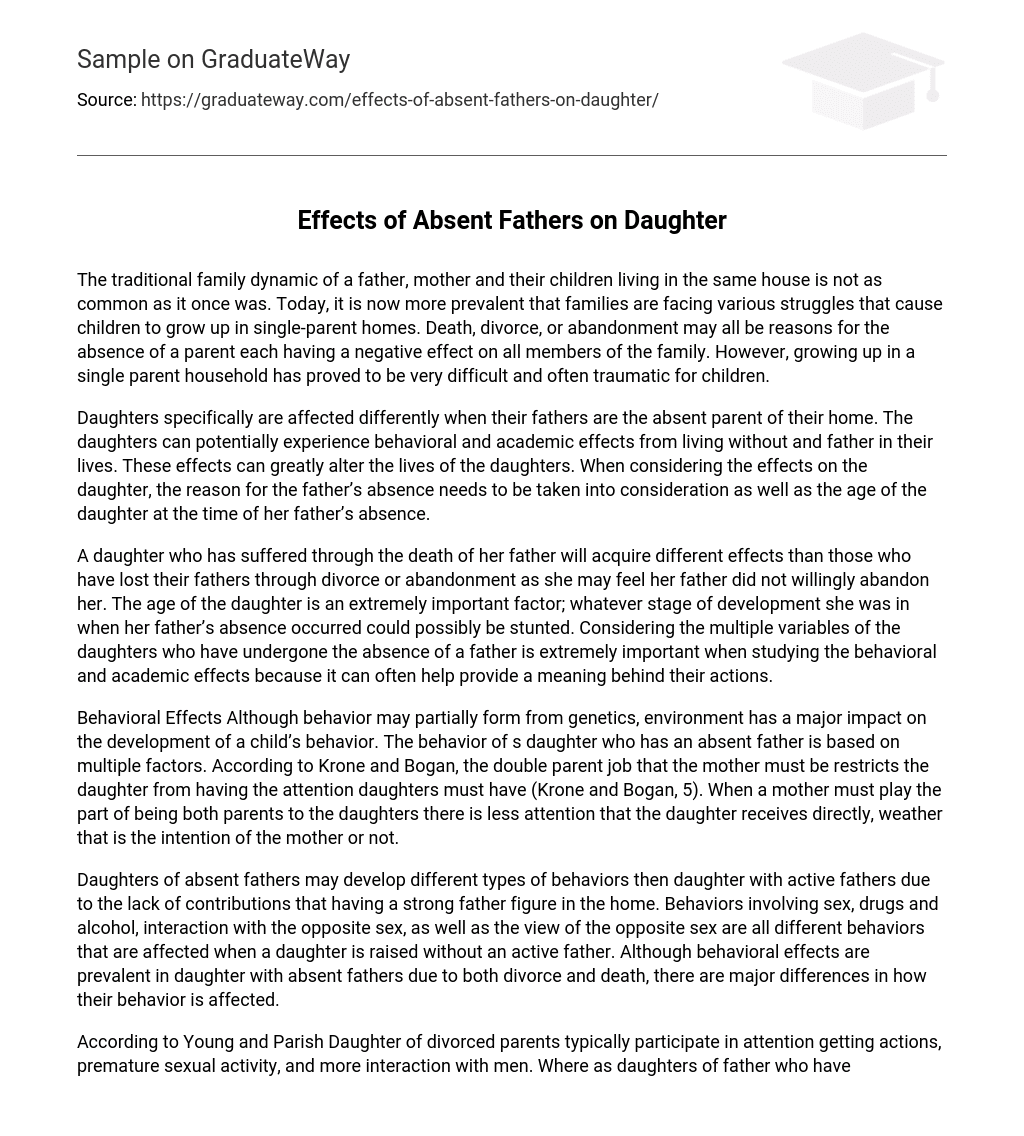The traditional family structure in today’s society, which includes a father, mother, and children living together, is becoming less common. Instead, we often see families facing various difficulties that result in children being raised by a single parent. These challenges may include death, divorce, or abandonment, all of which have negative effects on the entire family. Consequently, growing up in a single-parent household can be extremely difficult and often traumatic for children.
Daughters who do not have fathers in their lives face specific challenges that can greatly impact how they behave and perform academically. These consequences have a significant influence on the direction their lives take. To comprehend the effects on daughters, it is essential to consider both why their father is absent and the daughter’s age at this time.
The impact of a daughter losing her father can vary depending on the circumstances. If the father passed away, the daughter’s experience may differ from when the father left due to divorce or abandonment. In these latter situations, the daughter may perceive that her father did not willingly leave her. The age of the daughter at the time of her father’s absence is also crucial as it can potentially hinder her development, depending on which stage she was in. To gain a proper understanding of the behavioral and academic effects, it is essential to consider multiple factors when daughters experience father absence. This analysis often brings clarity to their actions and provides insight into their motivations.
The behavior of a child is influenced by genetics and the environment, with the latter having a greater impact. If a father is absent, multiple factors affect his daughter’s behavior. According to Krone and Bogan (5), assuming both parental roles reduces the attention given to the daughter by her mother, regardless of the mother’s intentions.
The absence of a strong paternal figure in the household can lead to distinct behaviors in daughters compared to those with involved fathers. This lack of support and guidance affects various aspects of their behavior, including involvement in sexual activities, substance abuse, alcohol consumption, interaction with the opposite sex, and their perception of the opposite sex. While both divorce and death can result in behavioral effects for daughters with absent fathers, there are notable differences in how their behavior is impacted.
According to Young and Parish, daughters of divorced parents tend to engage in attention-seeking behaviors, engage in premature sexual activity, and have more interaction with men. On the other hand, daughters of fathers who have passed away are typically more shy and avoid interaction with the opposite sex (Young and Parish, 218). The authors discovered that one of the main distinctions in how daughters behave around men is based on the circumstances of their father’s absence. This major difference is attributed to how the daughters perceive their father after his absence.
Young and Parish (Krone and Bogan, 3) suggest that daughters’ perception of their father differs based on whether the father is absent due to divorce or abandonment or if he has passed away. Daughters who experience divorce or abandonment tend to hold a negative view of their father, perceiving his absence as a deliberate choice to abandon them. On the other hand, daughters whose fathers have passed away maintain a positive perspective, not blaming their father’s absence on his fault or decision.
The way in which daughters perceive their fathers is crucial for understanding how their absence affects them. It sheds light on the underlying reasons behind their behavior.





